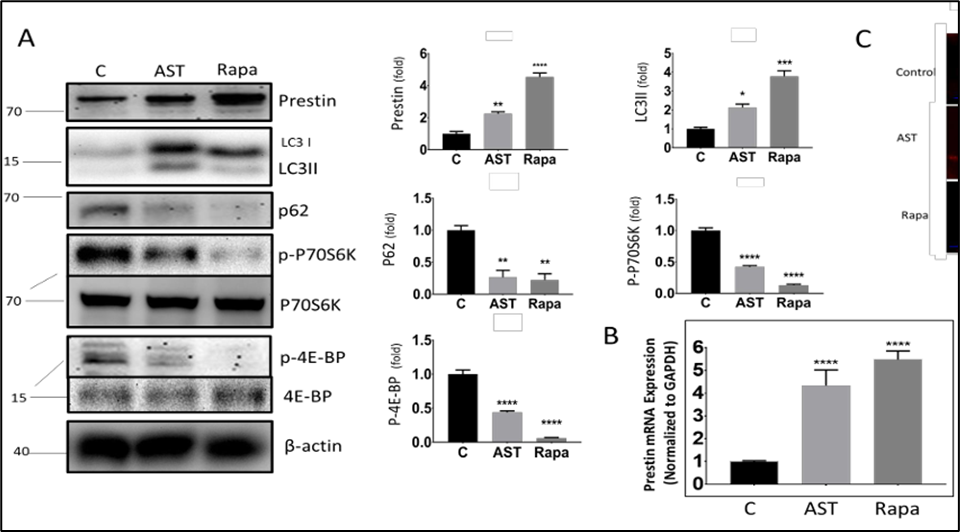Advantages:
- Novel Application of FDA approved drugs, rapamycin and its derivatives, for treating age-related hearing loss (ARHL).
- Targeting mTOR alleviates oxidative stress and inflammation in the cochlea, enhancing cellular health and resilience to age-related damage.
- Potential to Reverse or Delay Age-related hearing loss (ARHL) in patients.
Summary:
Age-related hearing loss (ARHL), or presbycusis, is a common sensory disorder in the elderly with no FDA-approved treatments. The disorder is characterized by degenerating cochlear structures, including hair cells and spiral ganglion neurons, which do not regenerate, leading to permanent hearing loss. The disease process in the aging cochlea involves complex molecular and cellular changes, including the decline of autophagy and the upregulation of the mammalian target of rapamycin (mTOR), which contribute to oxidative stress, mitochondrial damage, and inflammation in the cochlear, which accelerate hearing loss.
Our researchers have identified a novel therapeutic approach to treat age-related hearing loss (ARHL) by targeting autophagy dysfunction in the cochlea with rapamycin and its derivatives. Their research discovered that increased mTOR activity with age correlates with a blockade in autophagy flux, particularly in the fusion between autophagosomes and lysosomes. This leads to decreased prestin protein expression, a key protein critical for hearing. In vivo, experiments with CBA/CaJ mice, which model human presbycusis, revealed that treatments with mTOR inhibitors like rapamycin and its derivatives, FDA-approved drugs, significantly restored pristine expression and enhanced autolysosome formation, suggesting that modulating mTOR activity can reverse some effects of cochlear aging. This research highlights the potential for targeting mTOR-related autophagy dysfunction as a new therapeutic approach to delay or reverse ARHL.

The above image demonstrates how autophagy enhancement combined with mTOR inhibition leads to the upregulation of prestin gene and protein expression. (A) The Western blot analysis shows the protein expression levels of prestin, LC3, p62, P70S6K, and 4EBP (including their phosphorylated forms) in HEI-OC3 cells treated with autophagy agonist arsenic trioxide (AST) and mTOR inhibitor rapamycin (Rapa) compared to the untreated control group. (B) RT-PCR analysis reveals the prestin gene expression levels under the influence of AST and Rapa treatments.
Desired Partnerships:
- License
- Sponsored Research
- Co-Development